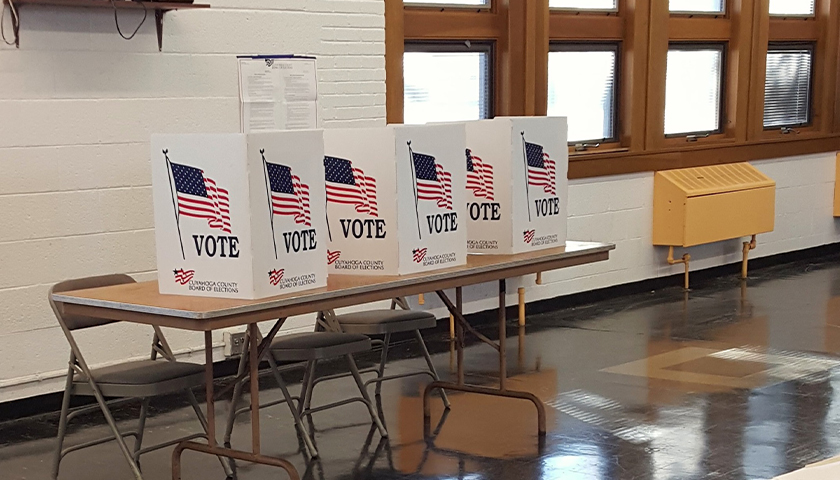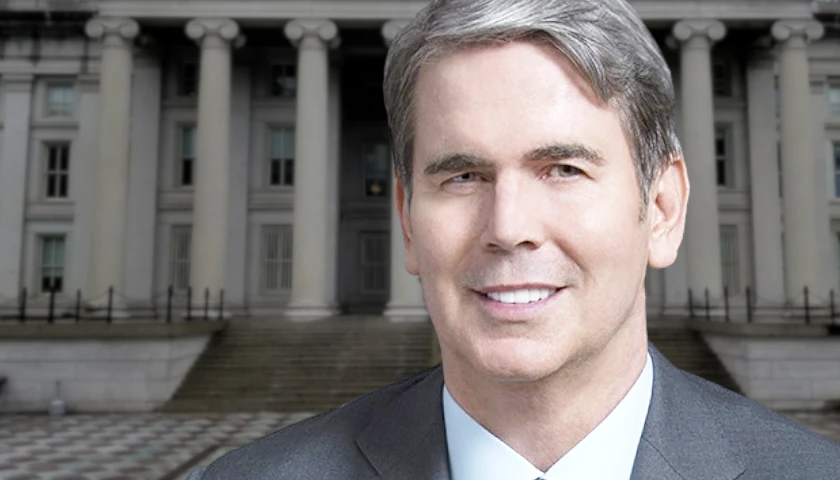by Michael McKenna
Despite what you may have read or heard, the Republicans running in this cycle have an advantage that may, at this point, be dispositive.
A recent batch of polling has made it clear that the issues voters consider most important are the same issues on which they most trust Republicans.
For example, in the recent NBC News survey (1000 registered voters) when asked about the most or second most important issue facing the nation, 34% said the economy (another 33% said the “cost of living”). When asked which party they thought would do a better job addressing it, respondents broke for Republicans by 19 points (47-28).
More than a quarter of respondents (26%) said border security is the most or second most important issue; when asked who would do a better job on that issue, respondents gave Republicans a 36-point advantage over Democrats (56-20).
 Slightly less than one in five respondents (17%) indicated that crime was the most or second most important issue; respondents gave the Republicans a 23-point margin (45-22) over the Democrats with respect to who could handle that issue better.
Slightly less than one in five respondents (17%) indicated that crime was the most or second most important issue; respondents gave the Republicans a 23-point margin (45-22) over the Democrats with respect to who could handle that issue better.
The story is only different on abortion. While less than one in five (18%) identified abortion as the most or second most important issue, it is the only top issue the Democrats dominate, with an advantage of 25 points (47-22).
Or perhaps you prefer Fox News surveys. Their most recent survey indicated that 19% of voters thought inflation was the most pressing issue facing the United States. Those same respondents gave the Republicans a nine-point lead (49-40) over the Democrats in addressing that issue.
This pattern is similar across a range of public surveys, including Harvard-Harris, CNN and Pew. The results are consistent and have remained durable despite the solution-free zones that have been Republican congressional campaigns to date.
A good way to think about the most important issues and voter sentiments is that about seven in 10 voters across a range of surveys indicate their principal concerns center on the economy, crime and border security, while the remainder focus on abortion rights or gun violence. Those whose focus on the first set of issues believe the Republicans have better approaches. Those who focus on the second set of issues, trust the Democrats more on those issues.
Clearly, in this instance, it is better to be on the 70% side of a 70-30 electoral equation.
On the flip side of this particular coin, there are also congruences between voter sentiments about the most important issues and a lack of confidence among voters in Team Biden’s ability to solve them.
For example, in a recent Politico/Morning Consult survey (2006 registered voters), 44% of respondents indicated that the economy was the most important issue. At the same time, 57% disapprove of Team Biden’s efforts with respect to the economy. At least 11% identified “security,” including border security (it’s not a great survey instrument), as the most important issue. More than half (56%) disapprove of the Team Biden’s efforts in this area.
In addition to problems with specific issues, Team Biden and their allies suffer from a growing sense of gathering economic gloom. When asked if their personal financial situation was getting better or worse, 54% of respondents in a Harvard-Harris survey said worse. More (82%) said that we are either in a recession now or will be within a year.
In the Politico survey, 64% said that we are in a recession. A CNN survey produced the same percentage. In the NBC survey, 63% said their families were falling behind economically.
Finally, there are two other characteristics of recent surveys that are likely to be relevant as we head towards the finish line.
First, there are too many surveys of registered voters. Surveys of likely voters are more relevant to campaigns and election outcomes. They are better predictors of election outcomes because they include people who routinely vote, who follow the news, etc.
At this point in the process, no one should be surveying registered voters. Nevertheless, media surveys continue to focus on registered voters. Why?
Here is one possible reason: it is well-known that surveys of likely voters tilt more Republican compared to surveys of registered voters. By focusing on registered voters rather than likely voters, the media surveys can act as election-cycle propaganda, making Democrats’ electoral chances and margins appear better than they really are.
Second, on a related note — and at this point it may be more vibe than anything else — it seems likely that surveys are systematically undercounting Republican votes (again). In the wake of the president’s recent remarks, it is very unlikely that each and every Republican feels comfortable self-identifying.
There’s no telling the numerical effect of this undercount until we see actual election results. But it is reasonable to assume that there is some hesitation among Republicans to participate in public surveys.
In other words, it is probably worse than it appears for the Democrats.
Taking all of this together, the Democrats might have hit peak about two weeks ago. Inevitably, though, foundational issues — the corrosive concerns about the national economy, the deterioration of family economies, the general sense of ineptitude and decrepitude on the part of Team Biden, and the always-present voter preference for divided government — have reasserted themselves.
That’s bad news for the incumbent in this cycle.
– – –
Michael McKenna is the president of MWR Strategies. He was most recently a deputy assistant to the president and deputy director of the Office of Legislative Affairs at the White House.
Photo “Voting Booths” by Tim Evanson. CC BY-SA 2.0.




